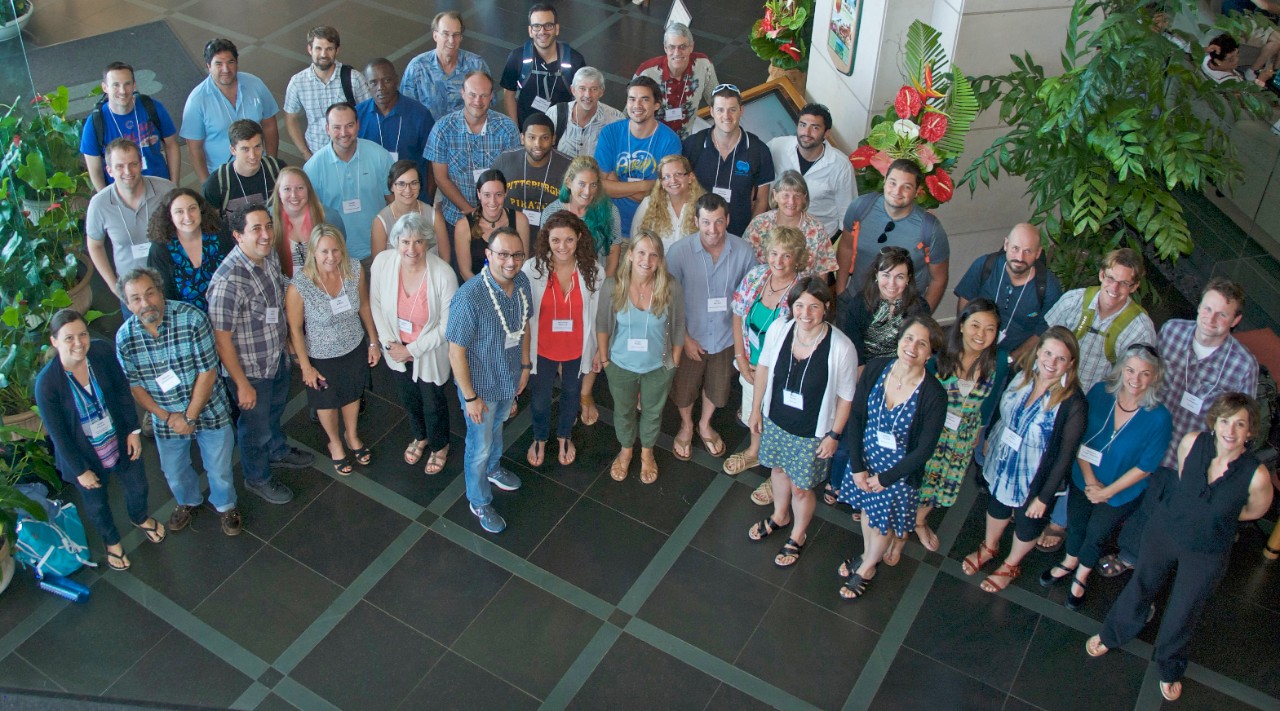


Reef health
July 08, 2016
NSF-sponsored coral bleaching workshop pools research information
U.S. investigators and leading coral reef scientists gathered in Waikiki, Hawaii, June 17-18 for a National Science Foundation (NSF) sponsored workshop on coral bleaching.
Scientists, postdoctoral researchers and graduate students from over 20 different universities and government agencies attended the workshop, which focused on a range of current research topics, from molecular level studies to large-scale ecological and geological topics related to coral bleaching.
According to University of Delaware’s Mark Warner, the workshop’s organizer, the aim was to bring together experts to form a consensus about what’s currently understood and, more importantly, what remains unknown about coral bleaching and the kinds of new studies that are necessary to form a better understanding of this global problem.
“We plan to use what we learned to formulate a strategy or roadmap to study this topic into the next decade,” said Warner, an algal and coral physiologist and professor in the College of Earth, Ocean, and Environment (CEOE).
According to the National Wildlife Federation, coral bleaching events are increasing and lasting longer, with additional increases expected in the future as ocean temperatures continue to rise. One well-known example is Australia’s Great Barrier Reef, which recently experienced the worst bleaching event in its history.
“A coordinated and concerted effort among U.S. reef biologists and international scientists across the globe is key to our understanding of how corals will fare in the future, how they recover from bleaching events and if we can find possible refuges or locations where corals are more resistant to bleaching,” Warner explained.
Recent work by Warner and colleagues has provided important knowledge about coral capacity to recover from annual bleaching in the Caribbean. He is currently studying how some species of coral are more resistant to bleaching than others in the Indo Pacific. Such information will be critical to helping predict the persistence of coral reefs.
Conference presentations
Following the workshop, Warner and several CEOE colleagues and students attended and presented at the 13th International Coral Reef Symposium (ICRS), also in Waikiki.
Danielle Dixson, an assistant professor of marine science and policy, ran an ICRS session on larval recruitment on coral reefs facing global change. Dixson is well known for her work to understand how human induced changes, such as ocean acidification, affect marine animals, particularly fish and corals. In the session, she discussed her work on the behavioral plasticity and survivorship of juvenile reef fishes on coral versus algae dominated reefs.
Rohan Brooker, a UD postdoctoral fellow working with Dixson, presented a talk titled “Coral Reef Fishes Use Mangrove Derived Chemical Cues to Differentiate Settlement Habitats" that explored his research findings that fish can tell by plant leaves if a reef is near a developed area or a more natural area. Brooker also is the lead author of a study published in the journal Coral Reefs exploring whether juvenile fish can sense and respond to chemical cues produced by coral reefs with low levels of seaweed cover and whether this may impact coral reef resilience.
Others within the college who presented at the 13th ICRS include:
- Tom Hawkins, a postdoctoral fellow;
- Kenny Hoadley, who recently earned his doctoral degree in marine bioscience within CEOE; and
- Julia Hagenmeyer, a current master's degree student working under the advisement of Warner.
Contact Us
Have a UDaily story idea?
Contact us at ocm@udel.edu
Members of the press
Contact us at 302-831-NEWS or visit the Media Relations website

